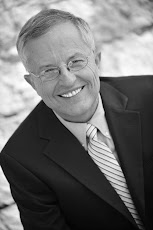Dear President-elect Obama,
Only one issue kept me from voting for you.
As an activist during the Civil Rights Movement in the 1960s, I so looked forward to the day when I could cast a presidential ballot for a person with an African-American heritage. I always thought I would vote for the first African-American Presidential candidate, regardless of which party, when he or she got his or her party's Presidential nomination.
I entered college the year my alma mater allowed its first African-American to become a student. I lived in the same dorm as the young man and admired his prowess on the football field. As a newspaper reporter on the Baylor University student newspaper, The Lariat, I interviewed the first African-American faculty member at the school and dared to spotlight how years earlier she had been denied admission when she wanted to attend our school. As the student newspaper's editor, I scolded the university's administration for waiting so long to make that faculty appointment. I even won a journalism award for what I said in my editorial. Then, I deliberately helped a young African-American journalist eventually become my successor as editor of The Baylor Lariat. (By the way, that was a feat that took decades to replicate.)
Do you get my point? I am so proud of you for making history this week. It hurt me greatly not to be able to vote for you.
But I still couldn't vote for you because of that one issue.
What is the issue? Abortion.
You see, Mr. President-elect, I have a very strong commitment opposing abortion. My commitment began long before my denomination, the Southern Baptist Convention, changed course and became truly pro-life. In fact, long before the Southern Baptist leaders you're likely to encounter on this issue over the next few years ever spoke out against abortion publicly even one time, I was pro-life and outspoken on that position.
Today is Sanctity of Human Life Sunday in Evangelical churches across our land. So, let me tell you on this day and on the eve of your inauguration as our nation's 44th President why I am pro-life.
It is a highly personal issue for me.
You see, I am married to an adopted person. I love her as much as you could love Michelle. We've been married almost 40 years. She is my best friend, my soul mate, and the love of my life. She is also the mother of my beloved son and daughter and the grandmother of my only grandchild. (Call me up sometime and I'll tell you all about that 3-year-old who wraps her grandmother and grandfather around her little tiny fingers!) I love all three of them very much, too.
One day I met the woman who gave birth to my wife and made an adoption plan for her. Back in the 1940s when people were so cruel to unwed mothers, the woman suffered much humiliation at the hands of many around her. I felt very sorry for her. Then she told me she felt so bad about being pregnant with my wife that she wanted to abort my wife and almost did. A few missing bucks made the difference. That startled me.
Then I got to thinking. If my wife's birthmother had aborted that baby, the love of my life would never have been able to enter my life. I would never have known the joy of being married for a very long time to a very special lady.
Then it dawned on me that my two precious children would not be here either. I can't imagine not having Matthew and Katie in my life. As children and now as adults, they have brought me untold joy and happiness. Years later when my granddaughter entered the picture, I thought, "Golly gee whiz, if Kay and I had never met and married and had our son, then this little princess would not be in my life either."
All this, of course, led me to read the Christian Scriptures more closely for an understanding of what God says about abortion. I found many passages in the Bible that underscored my concern and led me to a firm conviction about the sanctity of all human life.
Every time I think about abortion, I shudder and wonder who is going to have a great big gap in his or her life because some woman somewhere—perhaps because of humiliation, ignorance, greed, or whatever—chose to have an abortion.
I deeply regret that you do not share my perspective on this issue. Perhaps you would if you had married a woman who had been adopted as a baby. You are lucky you never had to face such thoughts. Nevertheless, I hope and pray that some day you will rethink your support of abortion—and if not oppose it, at least not work to support it.
By the way, my wife, Kay W. Moore, is the author of Gathering the Missing Pieces in an Adopted Life, published in 1994 by Broadman and Holman and then reprinted later in 2008 by Hannibal Books. This was one of the first books ever written from a truly Evangelical Christian perspective about adoption. It was based on a series Kay wrote in 1979 for the Houston Chronicle about her successful search (then a real novelty) for her birth mother. The series was even nominated by the Chronicle for a Pulitzer Prize. Let me know if you'd like to have a copy; I will personally see to it that you get one.
In the meanwhile, please know that I will continue to pray for you regularly, just as I have since the election. I may not have voted for you, but I truly want you to succeed. We may disagree on one major issue and maybe a few other smaller matters, but I do want you to become a truly great American President.
Blessings and Peace.
Louis Moore





